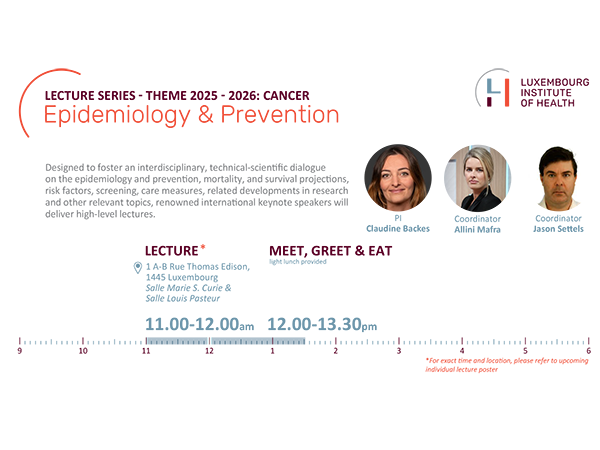🇬🇧 Unlocking Healthy Aging Through the Immune System
Immunosenescence not only increases susceptibility to infections, cancer, autoimmune diseases, and reduces vaccine efficacy in the elderly, but also contributes to chronic low-grade inflammation (inflammaging), thereby elevating the risk of multiple age-associated disorders. Our previous research demonstrated that a mouse model with premature immunosenescence exhibits signs of accelerated aging, cardiovascular and metabolic dysfunction and cognitive decline, underscoring the pivotal role of T cells in preserving systemic homeostasis. These findings position T cells at the intersection of inflammation, senescence, and age-related diseases.
In this presentation, I will discuss the molecular mechanisms by which aged immune cells fuel inflammaging and age-related pathologies, and we will explore emerging therapeutic strategies aimed at promoting healthy aging by targeting the immune system. By integrating genetic, cellular, pharmacological, and nutritional interventions, we seek to restore T cell functionality and reverse immunosenescence with the ultimate goal of enhancing immune competence to support healthy aging.
FUNDING: This study was supported by the European Regional Development Fund (ERDF) and the European Commission through H2020-EU.1.1, European Research Council grant ERC-2021-CoG 101044248-LetTBe.
Speaker

Mittelbrunn
Head of the Immunometabolism and Inflammation Lab
Tenured Researcher Consejo Superior de Investigaciones Científicas (CSIC)
Molecular Biology Center (CBM)
Visiting Professor
Columbia Center for Translational Immunology (CCTI)
Columbia Center for Human Longevity (CCHL)
Columbia University Irving Medical Center
Columbia University
Host
Nehrbass
CEO, Luxembourg Institute of Health
WHERE & WHEN
House of BioHealth
Meeting room (-1 floor)
27 Rue Henri Koch
L-4354 Esch-sur-Alzette
11:00am – 12:30pm
REGISTRATION
Please register by sending an email to: florence.henry@lih.lu
DATA PRIVACY
Read more about the “Data Protection Notice: processing of personal data in the scope of events’ management”.







